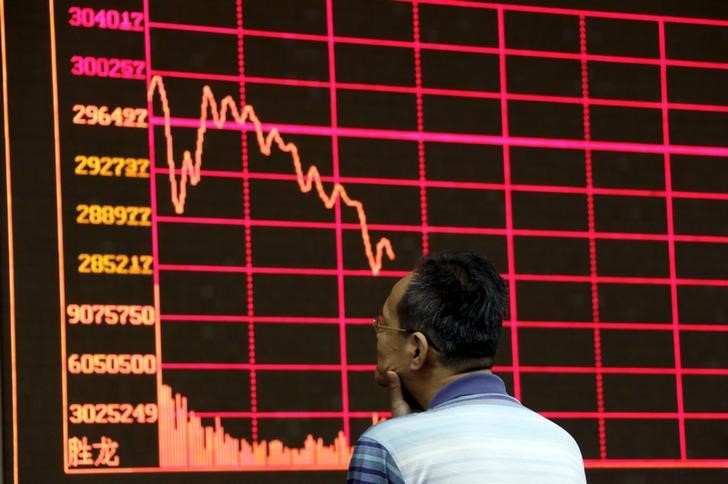By Sumanta Dey
BENGALURU (Reuters) - East Asian stocks will have a choppy ride through the rest of this year, with some markets managing modest gains, but with investors still fretting over China's prospects and how many U.S. interest rate hikes are coming, a Reuters poll showed.
In 2016, global equities had their worst start in many years, as investors dumped stocks around the world after depreciation of China's currency against the dollar in January raised fears its economy was slowing much more sharply than thought.
While those concerns have receded somewhat, equity strategists - whose views have generally been wildly bullish in the past - have now begun to take a more sober outlook.
The poll's findings will underscore the growing view that central banks' power over financial markets is on the wane and that without any solid economic revival, the years of double-digit returns may be well in the rear-view mirror.
The Shanghai Composite Index , which is down 15 percent since the end of 2015, is forecast to claw back some of those losses and rise to 3,300 points by year-end from Thursday's 3,003.92.
That year-end consensus is about 600 points lower than in a December survey and would still be a 7 percent fall from last year's close.
But even that lowered consensus is not on solid footing. Six of 15 analysts who gave an end-2016 forecast predicted the index would close the year below where it is now.
"The pressure on Chinese stocks will be bigger in the second half," said Du Changchun, analyst at Northeast Securities. "Domestic monetary policy is expected to be loosened. But if the Federal Reserve does not raise interest rates in the first half, the risks for a second-half hike will start to pile up and that will have an impact on capital flows."
Broadly speaking, there was a lack of enthusiasm. When interviewed, several strategists had little to say about broad trends in emerging markets, with many fixated on what the Fed will do with interest rates this year.
Fed Chair Janet Yellen on Tuesday hosed down the chances of any near-term rate hikes, pointing to low inflation and global risks. A Reuters poll earlier in March showed the Fed would hike by end-June and once more before year-end.
CHINA OVERCAPACITY WORRIES
The world's second largest economy has steadily slowed in recent quarters as Beijing tried to change course and derive growth from consumption rather than exports.
But rampant overcapacity in industries, a bloated housing market, low inflation and weak global trade have stymied economic growth, pushing Beijing and the People's Bank of China to ease policy and provide stimulus.
The central bank resumed its easing cycle at the start of March to support the economy and it is widely expected to act again in coming months.
But the specter of a sluggish Chinese economy is casting a shadow over much of Asia.
South Korea's KOSPI index (KS11) will rise to 2,000 points by end-2016, according to the poll, from Thursday's 1,995.85. That represents a 2 percent rise through this year, less than half of what was predicted three months back.
But there were some bright spots as well.
Taiwan's Taiex index (TWII), which closed Thursday at 8,744.83, is forecast to rise 9 percent in 2016 to finish the year at 9,100.
And India's benchmark BSE Sensex index (BSESN) is seen recouping this year's losses and rallying over 10 percent from here to the end of December on further improvement in the domestic economy which is already outperforming most in Asia.
Foreign institutional investors "are coming back into the Indian market and the rupee is strengthening so there is some liquidity," said Chandan Taparia, equity research analyst at Anand Rathi, a brokerage firm in Mumbai.
"We've witnessed selling pressure in the past months because of global concerns, but now global volatility is cooling down."

(Polling by bureaus in Bengaluru, Hong Kong, Seoul, Shanghai and Taipei; Editing by Richard Borsuk)